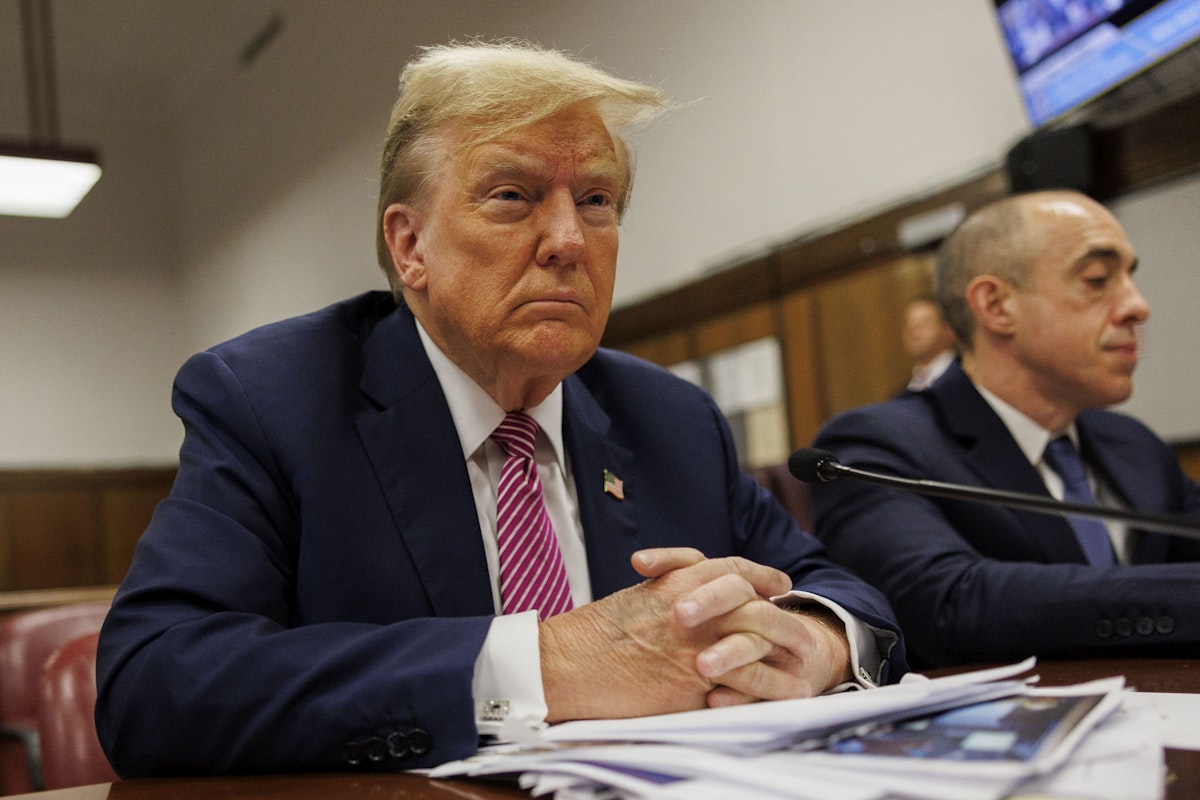Trump Begs Supreme Court to Let Him Get Away With Hush-Money Payments
Donald Trump is asking the Supreme Court to intervene in his New York hush-money case.The president-elect requested an administrative stay Wednesday on the sentencing for his sole criminal conviction, claiming that the high court’s July immunity ruling should prevent him from having to face consequences. Trump’s sentencing is currently scheduled for Friday.A jury of his peers unanimously decided in May that Trump was guilty on all 34 counts for falsifying business records with the intent to further an underlying crime in the first degree.Trump has skirted sentencing since July, leveraging the nation’s legal system to invoke delay after delay until now, when the clock could realistically run out on the case just 12 days before he is set to retake the White House.But the stay—which will once again delay Trump’s sentencing—would only nix an already pared-down and toothless conviction.Last week, Judge Juan Merchan dealt the final blow to any suggestions of serious consequences for the president-elect. Merchan wrote in his Friday order that “unconditional discharge” had become the “the most viable solution” for Trump, indicating that the incoming president would not be hampered down with fines, court-appointed supervision, or incarceration.In the wake of Merchan’s order, former U.S. District Attorney Joyce Vance argued in her legal column Civil Discourse that there could still be a light at the end of the legal tunnel for Trump’s sentencing. Rather than forcing Trump to face the music before his inauguration, she argued that Merchan’s decision to release Trump with “unconditional discharge” could effectively take the wind out of Trump’s sails should he try to do away with the criminal conviction altogether. It would also help delay Trump’s sentencing until he’s out of office again, in which case, all bets are off.It’s unclear if the Supreme Court will grant Trump’s request. As reporter Steven Mazie noted on X, “several justices will be so inclined,” but that doesn’t mean a majority will be.This story has been updated.

Donald Trump is asking the Supreme Court to intervene in his New York hush-money case.
The president-elect requested an administrative stay Wednesday on the sentencing for his sole criminal conviction, claiming that the high court’s July immunity ruling should prevent him from having to face consequences. Trump’s sentencing is currently scheduled for Friday.
A jury of his peers unanimously decided in May that Trump was guilty on all 34 counts for falsifying business records with the intent to further an underlying crime in the first degree.
Trump has skirted sentencing since July, leveraging the nation’s legal system to invoke delay after delay until now, when the clock could realistically run out on the case just 12 days before he is set to retake the White House.
But the stay—which will once again delay Trump’s sentencing—would only nix an already pared-down and toothless conviction.
Last week, Judge Juan Merchan dealt the final blow to any suggestions of serious consequences for the president-elect. Merchan wrote in his Friday order that “unconditional discharge” had become the “the most viable solution” for Trump, indicating that the incoming president would not be hampered down with fines, court-appointed supervision, or incarceration.
In the wake of Merchan’s order, former U.S. District Attorney Joyce Vance argued in her legal column Civil Discourse that there could still be a light at the end of the legal tunnel for Trump’s sentencing. Rather than forcing Trump to face the music before his inauguration, she argued that Merchan’s decision to release Trump with “unconditional discharge” could effectively take the wind out of Trump’s sails should he try to do away with the criminal conviction altogether. It would also help delay Trump’s sentencing until he’s out of office again, in which case, all bets are off.
It’s unclear if the Supreme Court will grant Trump’s request. As reporter Steven Mazie noted on X, “several justices will be so inclined,” but that doesn’t mean a majority will be.
This story has been updated.



